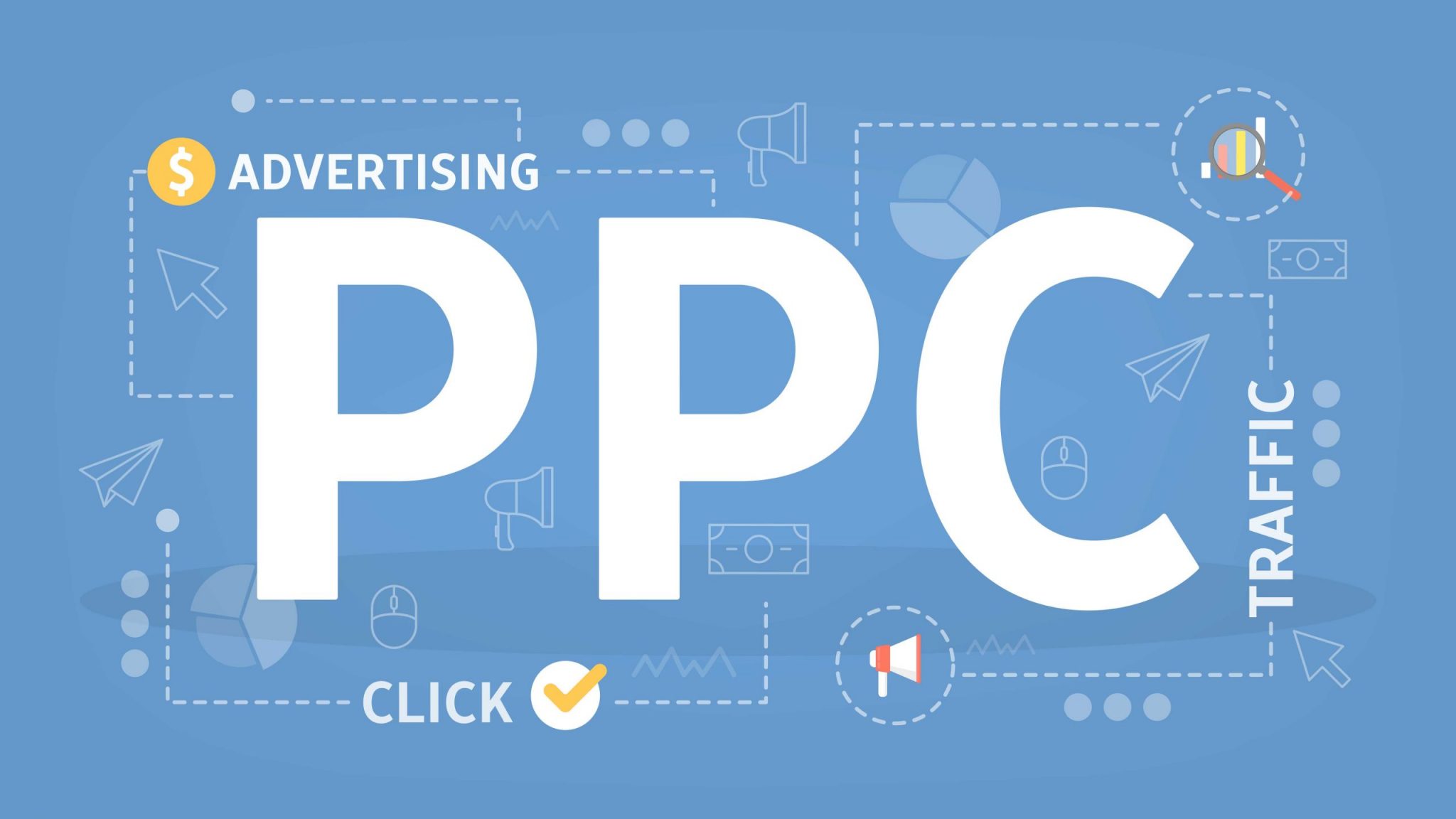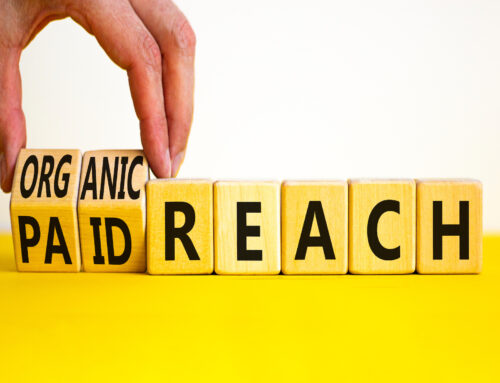By: Jessica Sims
What Is PPC?
PPC stands for pay-per-click, an advertising model that lets marketers place ads on an ad platform and pay the host of that platform every time their ad is clicked. Essentially, it’s a way of buying visits to your site, rather than attempting to “earn” those visits organically. The goal being to lead the viewer to click through the advertiser’s website or app, where that visitor can complete a valuable action, such as purchasing a product.
Search engine advertising is one of the most popular forms of PPC. It allows advertisers to display ads that are relevant to what users are searching for.
For example, if BRMC were to bid on the keyword “Marketing Agency”, our ad might show up in the top spot on the Google results page.
Each time our ad is clicked, sending a visitor to our website, we have to pay the search engine a small fee. When PPC is working correctly the fee is trivial because the visit is worth more than what you pay for it. In other words, if we pay $2.00 for a click, but that same click results in a $300.00 sale, then we have made a decent profit.
While several factors determine how successful your PPC advertising campaign will be, you can achieve a lot by focusing on:
- Landing Page Quality
- Keyword Relevance
- Quality Score
Google Ads
Google Ads, formerly AdWords, is the single most popular PPC advertising system on Earth. The Google Ads platform enables businesses to create ads that appear on Google’s search engine and other Google properties.
Google Ads operates on a pay-per-click model, in which advertisers bid on keywords and pay for each click on their advertisements. Each time a search is initiated, Google digs into the current pool of Google Ads advertisers and chooses a set of winners to appear in the ad space on the Google Search results. These “winners” are chosen based on a combination of factors, including the quality and relevance of their keywords and ad campaigns, as well as how much an advertiser is willing to bid on certain keywords.
More specifically, which ads get to appear on the page is based on an advertiser’s ad rank. This system allows winning advertisers to reach potential customers at a cost that fits their budget. It’s essentially a kind of auction.
 Keywords
Keywords
In pay-per-click marketing, everything starts with a keyword. When you search for something on Google, or any other search platform for that matter, you type words into the search bar to find what you’re looking for. The results that Google returns, whether they be paid advertisements or organic results, are there because they are relevant to the words you typed into that search bar. If you want your ads to show up on the results page you have to bid on one of those keywords. Naturally then to be successful at PPC you need to make sure you are bidding on the right keywords.
The advertisers who are most successful at Google Ads are continuously growing and refining their keyword lists. If you only do keyword research once, when you first create your campaign, you will most likely be missing out on hundreds of thousands of valuable, low-cost, and very relevant keywords that could be driving users to your site. Regular account activity is one of the best signs that your account will be successful. You should be continuously analyzing your account performance and making adjustments.
If a keyword is not applicable to your business or is not going to lead to sales, leads, or branding gains, then a high click-through rate for that keyword is actually negative.
An effective PPC keyword list should be:
- Relevant
- Exhaustive
- Expansive
Click-Through Rate
Click-through rate (CTR) is a metric that measures the number of clicks advertisers receive on their ads per their number of impressions.
Achieving a high click-through rate is vital to your PPC campaign’s success. It directly affects both your Quality Score and how much you pay every time someone clicks on your ad. A good click-through rate means first targeting the right keywords, then getting as many users as possible to click on the ads those keywords pertain to.
Conversion Rate Optimization
Conversion rate optimization (CRO), is the process of optimizing your sponsored search ads, landing pages, and the overall design of your website to increase your conversion rate. Basically, the goal is for the highest possible percentage of people who visit your website to convert or complete the desired action. CRO is quickly gaining popularity because it is seen as a way to increase profits from sales without risking ad spend.
If you spend a few minutes a week to improve the relevance of your ads you will be on your way to Google Ads bliss. What do I mean when I say improve the relevance of your ads? For example, you could pause your two worst performing ads and create two new ones that are more relevant, or you could add a new ad extension to your campaign.
Need Help With Pay-Per-Click Marketing (PPC)?
Are you looking to improve your PPC Marketing, or start your first campaign? Blue Ridge Media Company in Cleveland, OH is here to help you! Check out our Paid Advertising Services on our website to learn more about how we can boost your overall search rankings. Contact us and give us a call at (888)-535-2762 to start improving your search rankings today!






